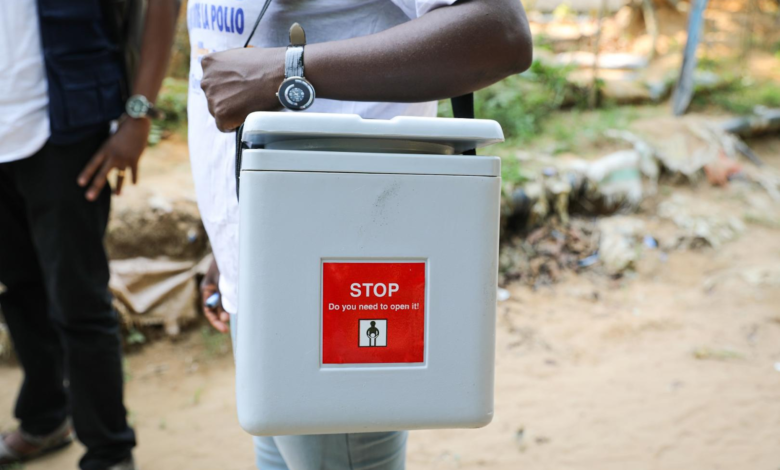Malawi Declares Polio Resurgence 2 Years After Africa’s Free Status
According to laboratory analysis, the resurgence of the infection in Malawi follows the link to a strain circulating in Pakistan’s Sindh province where polio is endemic.

Malawian health authorities have announced a resurgence of wild polio after a three-year-old child has been left paralysed in the country’s capital, Lilongwe, since Nov. 2021, the World Health Organisation (WHO) said.
It was the first case of wild poliovirus in Africa in more than five years.
According to a statement by WHO on Thursday, Feb. 17, the strain found in the child was linked to one circulating in Pakistan where the virus remains endemic.
The sequencing of the virus which was conducted in February by South Africa’s National Institute for Communicable Diseases and the U.S. Centers for Disease Control and Prevention confirmed it as type 1 wild poliovirus (WPV1), the statement read.
This is coming nearly two years after Africa was declared polio-free; although the WHO said that the new case did not affect that status.
“The last case of wild polio virus in Africa was identified in northern Nigeria in 2016 and globally there were only five cases in 2021,” Modjirom Ndoutabe, polio coordinator in the WHO Regional Office for Africa said.
“Any case of wild polio virus is a significant event and we will mobilise all resources to support the country’s response.”
Matshidiso Moeti, WHO Regional Director for Africa, said polio remains endemic in Afghanistan and Pakistan.
“As long as wild polio exists anywhere in the world all countries remain at risk of importation of the virus,” Moeti added.
“Following the detection of wild polio in Malawi, we’re taking urgent measures to forestall its potential spread.”
The global health body said it was giving its assistance to the health authorities in Malawi, carrying out a risk assessment and outbreak response and deploying the Global Polio Eradication Initiative’s (GPEI) rapid response team for supplemental immunisation.
Partners organisations would also send teams to support emergency operations and innovative vaccination campaign solutions, WHO said.
According to WHO, polio is a highly infectious disease caused by a virus that invades the nervous system and can cause total paralysis within hours. One in 200 infections leads to irreversible paralysis.
The virus is transmitted from person-to-person mainly through the faecal-oral route or, less frequently, through contaminated water or food, and multiplies in the intestine.
Since 1988, global cases of the virus have dropped by 99 percent, from more than 350,000 to just five cases in Afghanistan and Pakistan in 2020, according to GPEI data.
While there is no cure for polio, the disease can be prevented through administration of a simple and effective vaccine.
More than 95 per cent of Africa’s population has now been immunised, one of the conditions that the Africa Regional Certification Commission set before declaring the continent free from wild polio.
Why resurgence?
This is not the first time there is a resurgence of the virus in a country that has once defeated it.
This happened in Angola which defeated polio in 2001 and had remained free from it for four years until 2005 when a number of cases were thought to have been brought in from outside the country.
The WHO said that it is important countries remain vigilant and avoid complacency until there is global eradication.
Support Our Journalism
There are millions of ordinary people affected by conflict in Africa whose stories are missing in the mainstream media. HumAngle is determined to tell those challenging and under-reported stories, hoping that the people impacted by these conflicts will find the safety and security they deserve.
To ensure that we continue to provide public service coverage, we have a small favour to ask you. We want you to be part of our journalistic endeavour by contributing a token to us.
Your donation will further promote a robust, free, and independent media.
Donate HereStay Closer To The Stories That Matter




